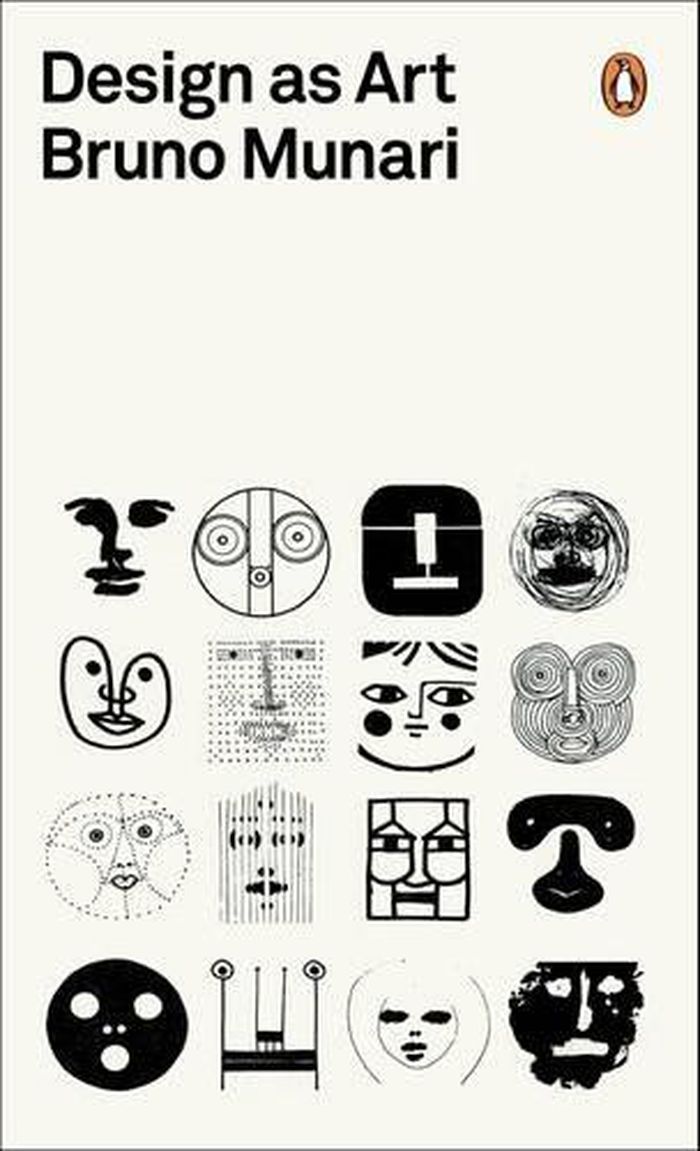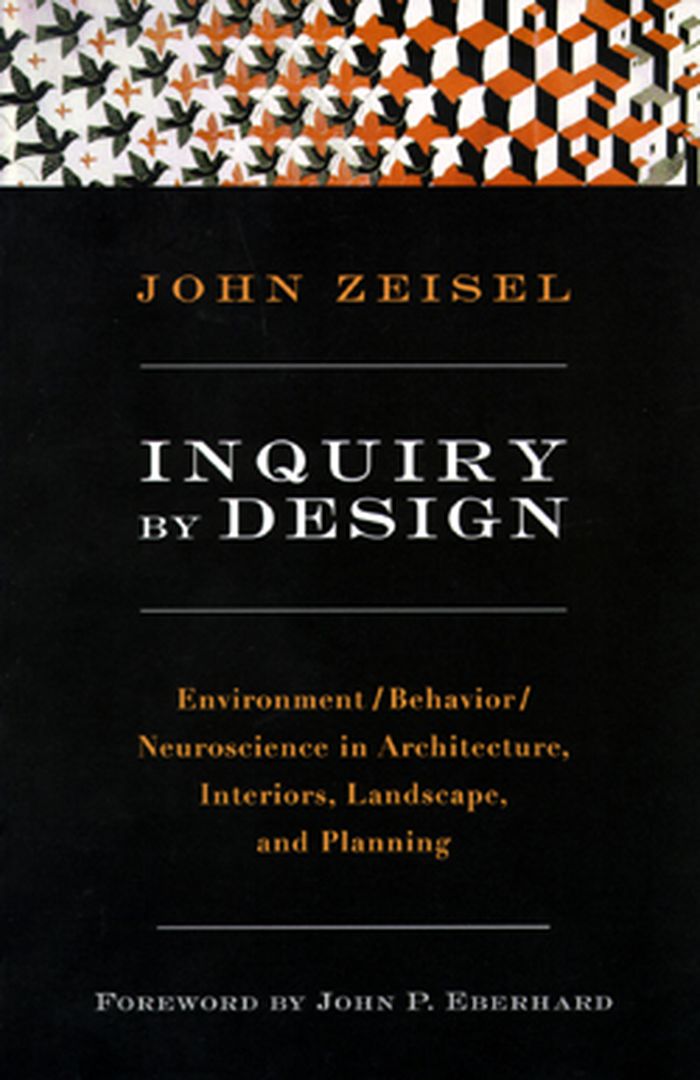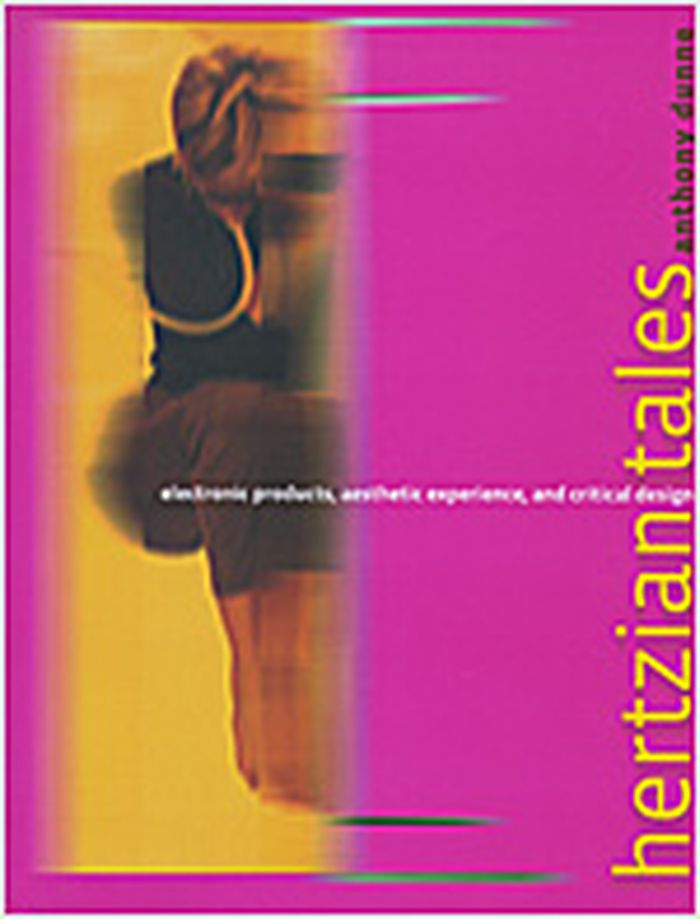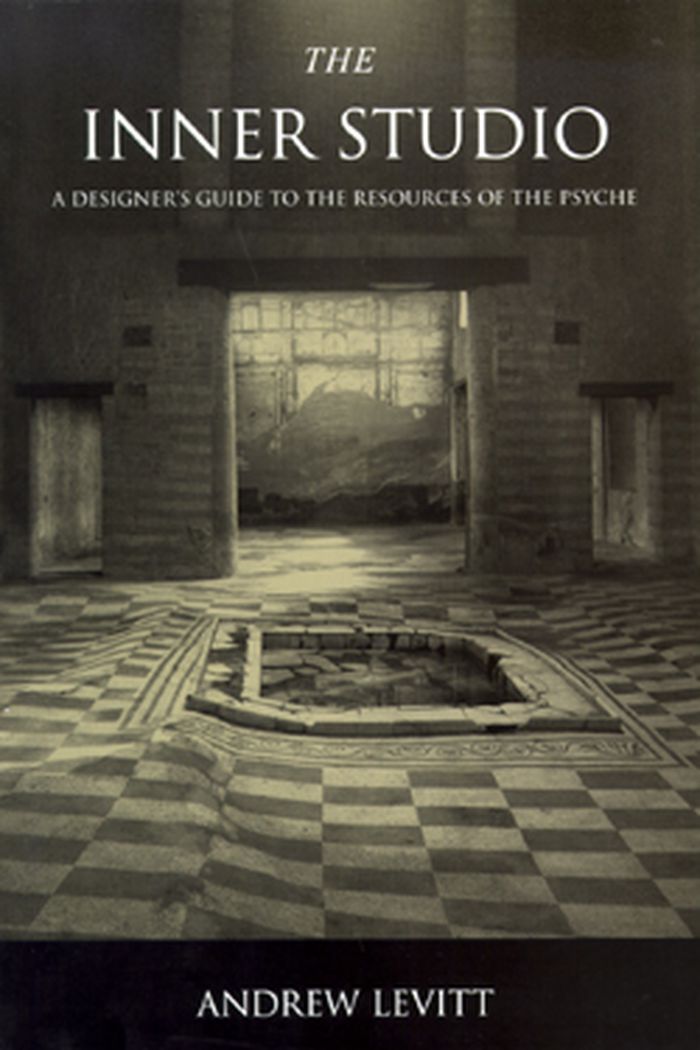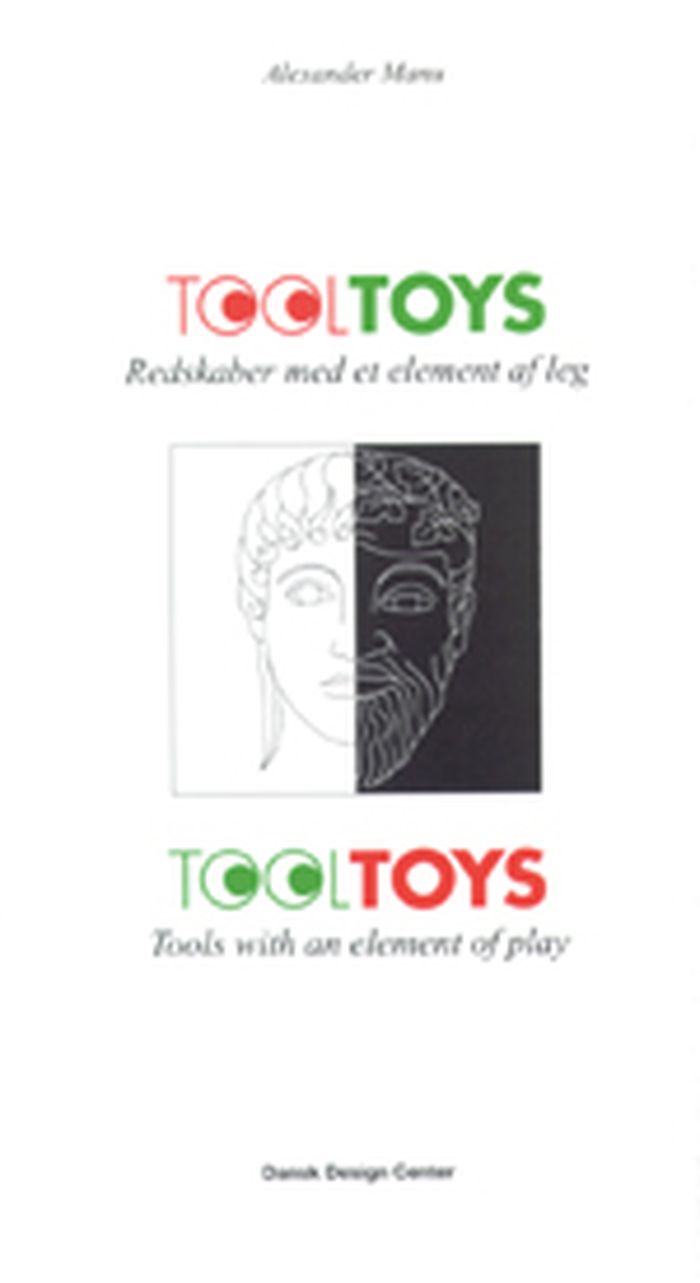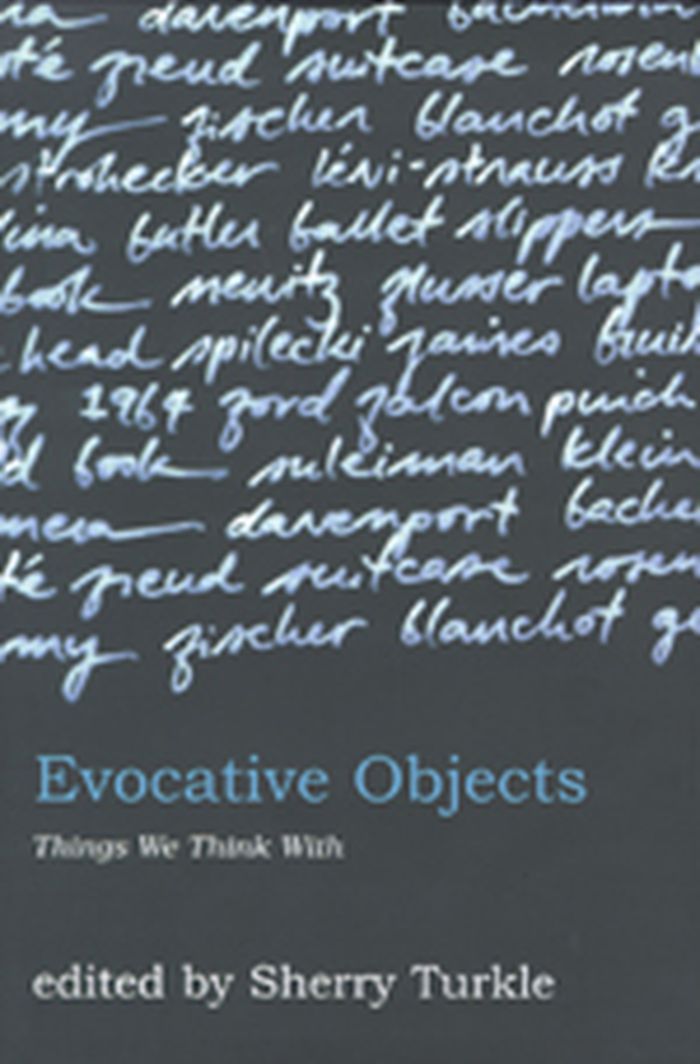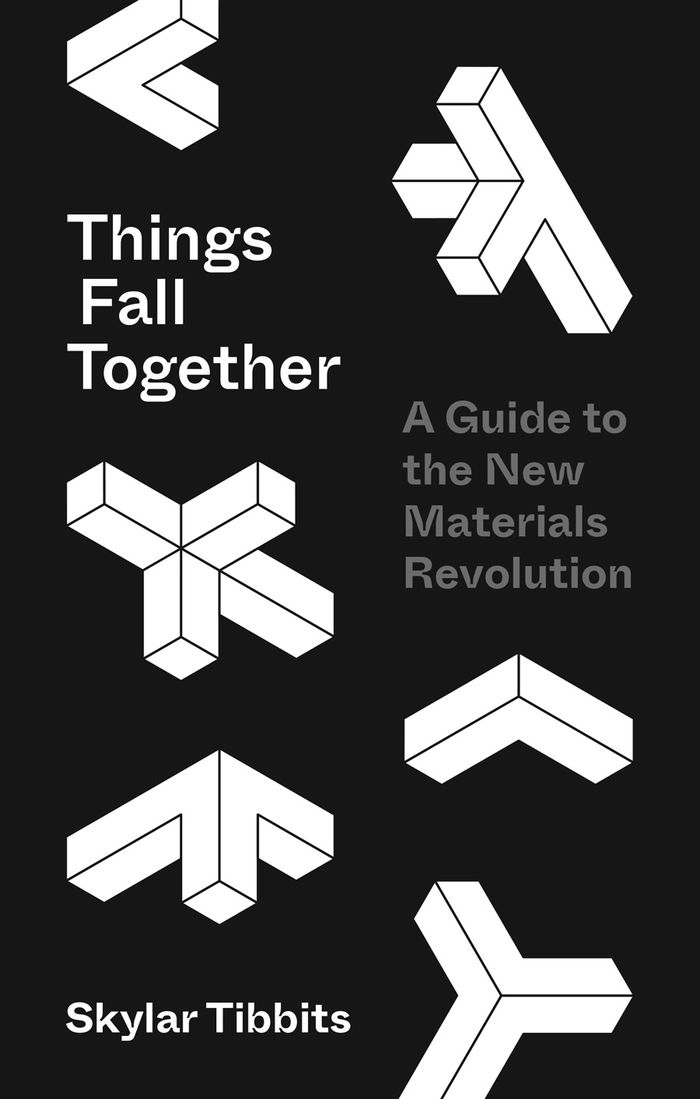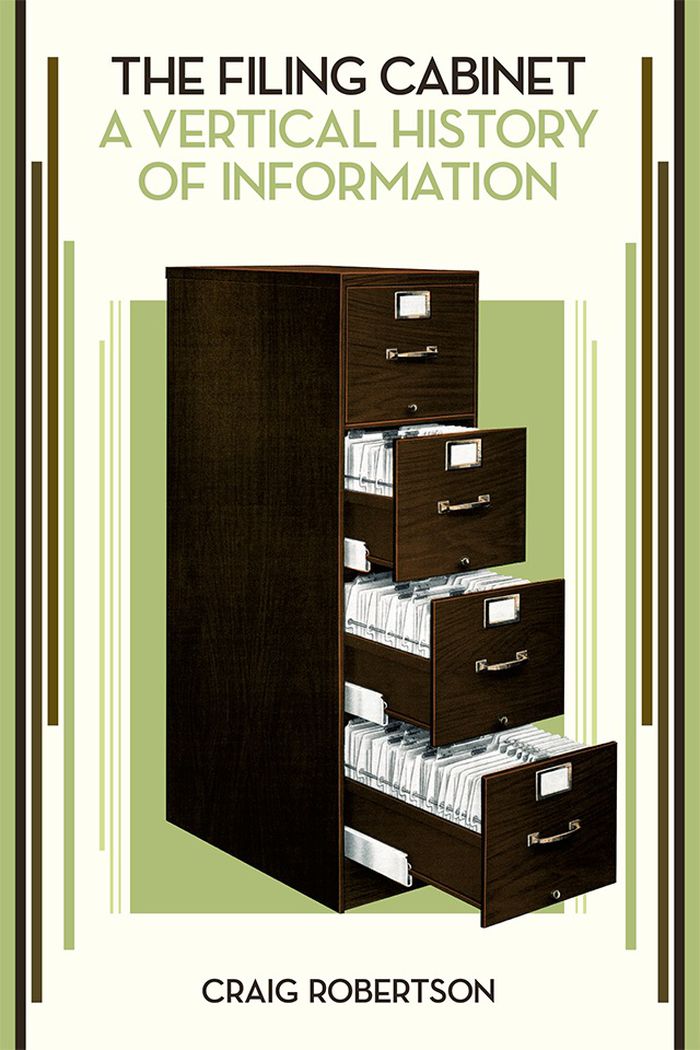Design as art: Bruno Munari
$23.00
(disponible en magasin)
Résumé:
Bruno Munari insisted that design be beautiful, functional and accessible, and this enlightening and highly entertaining book sets out his ideas about visual, graphic and industrial design and the role it plays in the objects we use everyday. Lamps, road signs, typography, posters, children's books, advertising, cars and chairs.
Design as art: Bruno Munari
Actions:
Prix:
$23.00
(disponible en magasin)
Résumé:
Bruno Munari insisted that design be beautiful, functional and accessible, and this enlightening and highly entertaining book sets out his ideas about visual, graphic and industrial design and the role it plays in the objects we use everyday. Lamps, road signs, typography, posters, children's books, advertising, cars and chairs.
Théorie du design
livres
$32.95
(disponible sur commande)
Résumé:
Design Futuring argues that responding to ethical, political, social and ecological concerns now requires a new type of practice that recognizes design's importance in overcoming a world made unsustainable. Illustrated throughout with international case material, Design Futuring presents the author's ground-breaking ideas in a coherent framework, focusing specifically(...)
Design futuring: sustainability, ethics and new practice
Actions:
Prix:
$32.95
(disponible sur commande)
Résumé:
Design Futuring argues that responding to ethical, political, social and ecological concerns now requires a new type of practice that recognizes design's importance in overcoming a world made unsustainable. Illustrated throughout with international case material, Design Futuring presents the author's ground-breaking ideas in a coherent framework, focusing specifically on the ways in which concerns for ethics and sustainability can change the practice of Design for the twenty-first century. Design Futuring - a pathfinding text for the new era - extends far beyond Design courses and professional practice, and will also be invaluable to students and practitioners of Architecture, the Creative Arts, Business and Management. Tony Fry is a director of the sustainment consultancy Team D/E/S and Adjunct Professor of Design, Griffith University, Queensland College of Art.
livres
décembre 2008, Oxford, New York
Théorie du design
Inquiry by design
$37.95
(disponible sur commande)
Résumé:
INQUIRY BY DESIGN lays out fundamental theoretical approaches to design and research as well as practical research methods applicable to planning, programming, and evaluating physical environments. It systematically describes basic methods of research and how to apply them and shows how collaboration between designers and researchers leads to greater design creativity.
Inquiry by design
Actions:
Prix:
$37.95
(disponible sur commande)
Résumé:
INQUIRY BY DESIGN lays out fundamental theoretical approaches to design and research as well as practical research methods applicable to planning, programming, and evaluating physical environments. It systematically describes basic methods of research and how to apply them and shows how collaboration between designers and researchers leads to greater design creativity.
Théorie du design
livres
$25.95
(disponible sur commande)
Résumé:
Finally, we are learning that simplicity equals sanity. We're rebelling against technology that's too complicated, DVD players with too many menus, and software accompanied by 75-megabyte "read me" manuals. The iPod's clean gadgetry has made simplicity hip. But sometimes we find ourselves caught up in the simplicity paradox: we want something that's simple and easy to(...)
The laws of simplicity : design, technology, business, life
Actions:
Prix:
$25.95
(disponible sur commande)
Résumé:
Finally, we are learning that simplicity equals sanity. We're rebelling against technology that's too complicated, DVD players with too many menus, and software accompanied by 75-megabyte "read me" manuals. The iPod's clean gadgetry has made simplicity hip. But sometimes we find ourselves caught up in the simplicity paradox: we want something that's simple and easy to use, but also does all the complex things we might ever want it to do. In "The laws of simplicity", John Maeda offers ten laws for balancing simplicity and complexity in business, technology, and design -guidelines for needing less and actually getting more. Maeda - a professor in MIT's Media Lab and a world-renowned graphic designer - explores the question of how we can redefine the notion of "improved" so that it doesn't always mean something more, something added on. Maeda's first law of simplicity is "Reduce." It's not necessarily beneficial to add technology features just because we can. And the features that we do have must be organized (Law 2) in a sensible hierarchy so users aren't distracted by features and functions they don't need. But simplicity is not less just for the sake of less. Skip ahead to Law 9: "Failure : accept the fact that some things can never be made simple." Maeda's concise guide to simplicity in the digital age shows us how this idea can be a cornerstone of organizations and their products -how it can drive both business and technology. We can learn to simplify without sacrificing comfort and meaning, and we can achieve the balance described in Law 10. This law, which Maeda calls "The One," tells us: "Simplicity is about subtracting the obvious, and adding the meaningful."
livres
septembre 2006, Cambridge (MA)
Théorie du design
$37.50
(disponible sur commande)
Résumé:
As our everyday social and cultural experiences are increasingly mediated by electronic products--from "intelligent" toasters to iPods--it is the design of these products that shapes our experience of the "electrosphere" in which we live. Designers of electronic products, writes Anthony Dunne in "Hertzian tales", must begin to think more broadly about the aesthetic role(...)
Hertzian tales : electronic products, aesthetic experience, and critical design
Actions:
Prix:
$37.50
(disponible sur commande)
Résumé:
As our everyday social and cultural experiences are increasingly mediated by electronic products--from "intelligent" toasters to iPods--it is the design of these products that shapes our experience of the "electrosphere" in which we live. Designers of electronic products, writes Anthony Dunne in "Hertzian tales", must begin to think more broadly about the aesthetic role of electronic products in everyday life. Industrial design has the potential to enrich our daily lives--to improve the quality of our relationship to the artificial environment of technology, and even, argues Dunne, to be subverted for socially beneficial ends. The cultural speculations and conceptual design proposals in "Hertzian tales" are not utopian visions or blueprints; instead, they embody a critique of present-day practices, "mixing criticism with optimism." Six essays explore design approaches for developing the aesthetic potential of electronic products outside a commercial context--considering such topics as the post-optimal object and the aesthetics of user-unfriendliness--and five proposals offer commentary in the form of objects, videos, and images. Very little has changed in the world of design since "Hertzian tales" was first published by the Royal College of Art in 1999, writes Dunne in his preface to this MIT Press edition : "Design is not engaging with the social, cultural, and ethical implications of the technologies it makes so sexy and consumable." His project and proposals challenge it to do so.
Théorie du design
$17.95
(disponible sur commande)
Résumé:
The Inner Studio unveils a place of learning inside each of us where we can learn lessons about ourselves that are inseperable from what we design and build. Filled with anecdotes, examples and exercises, The Inner Studio guides readers into deeper levels of our imagination and decision making, focusing squareley on the experience of the designer during the creative act(...)
The inner studio: a designer's guide to the resources of the psyche
Actions:
Prix:
$17.95
(disponible sur commande)
Résumé:
The Inner Studio unveils a place of learning inside each of us where we can learn lessons about ourselves that are inseperable from what we design and build. Filled with anecdotes, examples and exercises, The Inner Studio guides readers into deeper levels of our imagination and decision making, focusing squareley on the experience of the designer during the creative act of design. How do designers convert their subjective and often unconscious experience of the world into design? What are the creative consequencesof what we may call, designing from within?" Welcome to the The Inner Studio.
Théorie du design
$42.50
(disponible en magasin)
Résumé:
We all know what a tool is, and what toys are. But what happens if the two concepts are combined? Manu's message is that many of the succesful products of the future will be – ToolToys.
janvier 1995, Kobenhavn
Tooltoys : redskaber med et element af leg / tools with an element of play
Actions:
Prix:
$42.50
(disponible en magasin)
Résumé:
We all know what a tool is, and what toys are. But what happens if the two concepts are combined? Manu's message is that many of the succesful products of the future will be – ToolToys.
$27.95
(disponible sur commande)
Résumé:
For Sherry Turkle, "We think with the objects we love; we love the objects we think with." In "Evocative objects", Turkle collects writings by scientists, humanists, artists, and designers that trace the power of everyday things. These essays reveal objects as emotional and intellectual companions that anchor memory, sustain relationships, and provoke new ideas. This(...)
Evocative objects : things we think with
Actions:
Prix:
$27.95
(disponible sur commande)
Résumé:
For Sherry Turkle, "We think with the objects we love; we love the objects we think with." In "Evocative objects", Turkle collects writings by scientists, humanists, artists, and designers that trace the power of everyday things. These essays reveal objects as emotional and intellectual companions that anchor memory, sustain relationships, and provoke new ideas. This volume's special contribution is its focus on everyday riches: the simplest of objects - an apple, a datebook, a laptop computer - are shown to bring philosophy down to earth. The poet contends, "No ideas but in things." The notion of evocative objects goes further : objects carry both ideas and passions. In our relations to things, thought and feeling are inseparable. Whether it's a student's beloved 1964 Ford Falcon (left behind for a station wagon and motherhood), or a cello that inspires a meditation on fatherhood, the intimate objects in this collection are used to reflect on larger themes -the role of objects in design and play, discipline and desire, history and exchange, mourning and memory, transition and passage, meditation and new vision. In the interest of enriching these connections, Turkle pairs each autobiographical essay with a text from philosophy, history, literature, or theory, creating juxtapositions at once playful and profound. So we have Howard Gardner's keyboards and Lev Vygotsky's hobbyhorses; William Mitchell's Melbourne train and Roland Barthes' pleasures of text; Joseph Cevetello's glucometer and Donna Haraway's cyborgs. Each essay is framed by images that are themselves evocative. Essays by Turkle begin and end the collection, inviting us to look more closely at the everyday objects of our lives, the familiar objects that drive our routines, hold our affections, and open out our world in unexpected ways.
Théorie du design
$32.00
(disponible sur commande)
Résumé:
Things in life tend to fall apart. Cars break down. Buildings fall into disrepair. Personal items deteriorate. Yet today’s researchers are exploiting newly understood properties of matter to program materials that physically sense, adapt, and fall together instead of apart. These materials open new directions for industrial innovation and challenge us to rethink the way(...)
Things fall together: a guide to the new materials revolution
Actions:
Prix:
$32.00
(disponible sur commande)
Résumé:
Things in life tend to fall apart. Cars break down. Buildings fall into disrepair. Personal items deteriorate. Yet today’s researchers are exploiting newly understood properties of matter to program materials that physically sense, adapt, and fall together instead of apart. These materials open new directions for industrial innovation and challenge us to rethink the way we build and collaborate with our environment. "Things fall together" is a provocative guide to this emerging, often mind-bending reality, presenting a bold vision for harnessing the intelligence embedded in the material world. Drawing on his pioneering work on self-assembly and programmable material technologies, Skylar Tibbits lays out the core, frequently counterintuitive ideas and strategies that animate this new approach to design and innovation. From furniture that builds itself to shoes printed flat that jump into shape to islands that grow themselves, he describes how matter can compute and exhibit behaviors that we typically associate with biological organisms, and challenges our fundamental assumptions about what physical materials can do and how we can interact with them. Intelligent products today often rely on electronics, batteries, and complicated mechanisms. Tibbits offers a different approach, showing how we can design simple and elegant material intelligence that may one day animate and improve itself—and along the way help us build a more sustainable future.
Théorie du design
$38.99
(disponible sur commande)
Résumé:
Robertson’s unconventional history of the origins of the information age posits the filing cabinet as an information storage container, an 'automatic memory' machine that contributed to a new type of information labor privileging manual dexterity over mental deliberation. Gendered assumptions about women’s nimble fingers helped to naturalize the changes that brought(...)
The filing cabinet: a vertical history of information
Actions:
Prix:
$38.99
(disponible sur commande)
Résumé:
Robertson’s unconventional history of the origins of the information age posits the filing cabinet as an information storage container, an 'automatic memory' machine that contributed to a new type of information labor privileging manual dexterity over mental deliberation. Gendered assumptions about women’s nimble fingers helped to naturalize the changes that brought women into the workforce as low-level clerical workers. The filing cabinet emerges from this unexpected account as a sophisticated piece of information technology and a site of gendered labor that with its folders, files, and tabs continues to shape how we interact with information and data in today’s digital world.
Théorie du design
